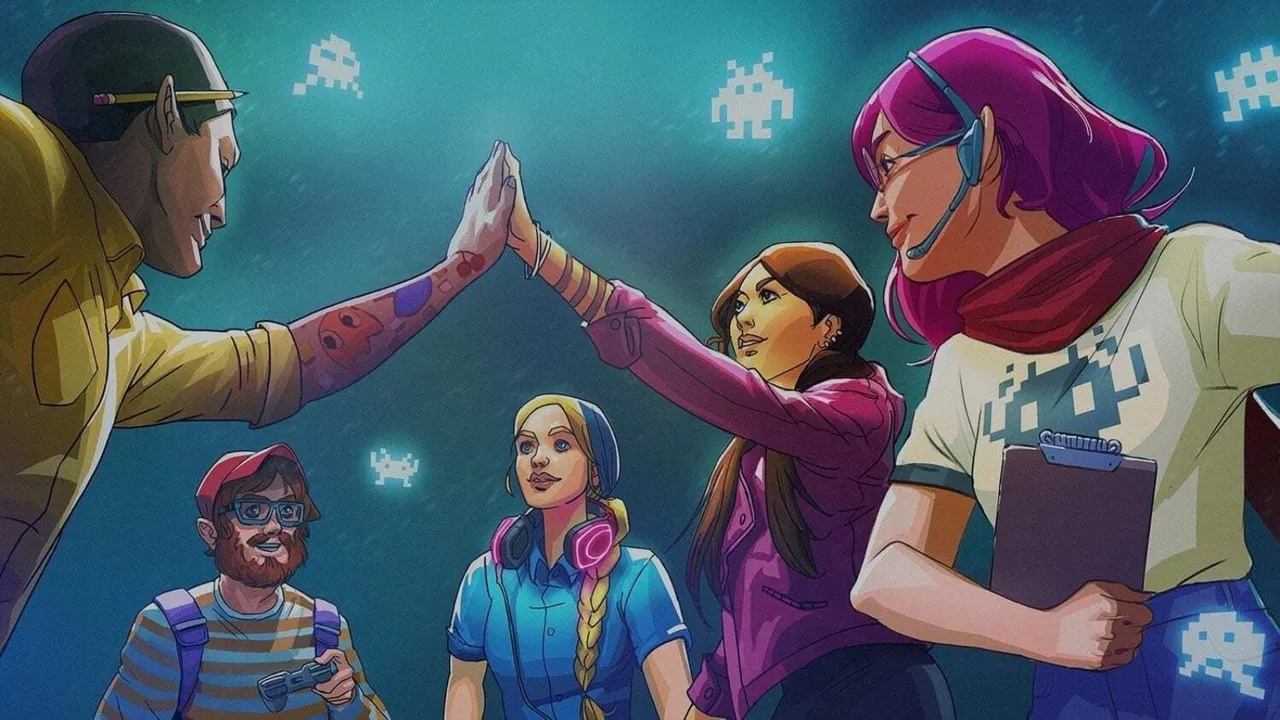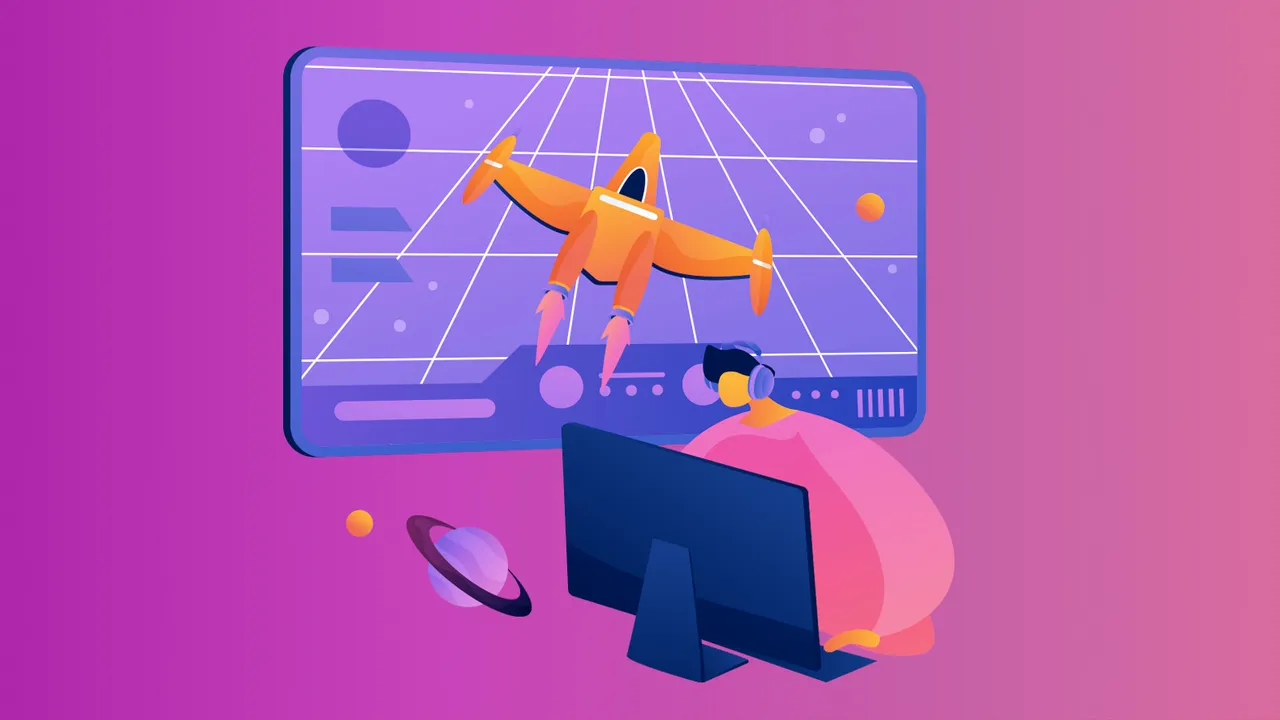Game Development Jobs in the Video Game Industry: The Ultimate Quick Guide

Introduction
The video game industry has experienced tremendous growth over the years, with a global audience enjoying games across various platforms. This expansion has led to an increase in demand for skilled game developers who can bring a game's design and art to life. In this Hitmarker career advice article, we will delve into the world of game development jobs, their roles and responsibilities, the required skills, and how to kickstart your career in this dynamic industry.
The Various Roles in Game Development
Game development is a multifaceted discipline that encompasses numerous roles, each with its unique set of responsibilities and required skills. Some of the most common game development jobs include:
Gameplay Programmer: Gameplay programmers are responsible for implementing the core mechanics, systems, and features of a game. They work closely with game designers to ensure that the gameplay is engaging, balanced, and fun. Typical tasks include coding player controls, enemy AI, and game progression systems.
Engine Programmer: Engine programmers specialize in developing and optimizing game engines, which are the software frameworks that power a game's visuals, audio, physics, and other components. They work with various programming languages and platforms to create efficient, high-performance game engines that can run on multiple devices.
Graphics Programmer: Graphics programmers focus on the visual aspects of a game, including rendering techniques, shaders, and lighting. They work closely with game artists to ensure that the game's visuals are both stunning and optimized for performance.
AI Programmer: AI programmers develop artificial intelligence systems for non-player characters (NPCs) and other game elements. They create complex algorithms that allow NPCs to interact with the game world, make decisions, and exhibit realistic behaviors.
Network Programmer: Network programmers are responsible for implementing the online components of a game, including multiplayer functionality, server infrastructure, and security. They ensure that players can connect, communicate, and compete with one another in a seamless and stable online environment.
Tools Programmer: Tools programmers create custom software tools and utilities that help streamline the game development process. These tools can range from level editors and asset management systems to debugging and performance profiling utilities.
Required Skills for Game Development Jobs
To excel in a game development job in the video game industry, candidates should possess a combination of technical, creative, and interpersonal skills. Some of the most important skills for game development professionals include:
Strong programming knowledge: Game developers need a solid foundation in programming languages, such as C++, C#, Java, or Python. Additionally, familiarity with scripting languages like Lua or JavaScript can be valuable.
Proficiency in game engines: Experience working with popular game engines like Unity or Unreal Engine is crucial for game developers. These engines offer built-in tools and frameworks that can significantly streamline the development process.
Computer graphics and mathematics: A strong understanding of computer graphics concepts, such as rendering techniques, shaders, and lighting, is essential for graphics programmers. Additionally, game developers should have a solid grasp of mathematics, particularly in areas like linear algebra, calculus, and geometry.
Problem-solving and critical thinking: Game developers must be able to identify, analyze, and resolve complex technical issues that may arise during the development process.
Collaboration and communication: Game developers often work closely with other team members, such as game designers, artists, and producers. Strong communication and collaboration skills are essential for effectively conveying ideas and addressing challenges.
Adaptability and continuous learning: The video game industry is constantly evolving, with new technologies, tools, and techniques emerging regularly. Game developers must be adaptable and committed to continuous learning to stay relevant in the field
How to Launch Your Career in Game Development
Breaking into the video game industry as a game developer can be challenging, but with the right combination of skills, experience, and perseverance, you can land your dream job. Here are some steps to help you get started:
Build a strong foundation in programming: Invest time in learning programming languages, such as C++, C#, Java, or Python. Online courses, workshops, and tutorials can be valuable resources for enhancing your programming skills.
Familiarize yourself with game engines: Gain hands-on experience working with popular game engines like Unity or Unreal Engine. These engines offer built-in tools and frameworks that can significantly streamline the development process and help you build impressive game prototypes.
Develop a portfolio: A well-rounded portfolio showcasing your programming skills and completed projects is essential for demonstrating your capabilities to potential employers. Include samples of your work from personal projects, internships, or freelance assignments.
Gain experience through internships or freelance work: Hands-on experience is crucial for building your skills and résumé. Look for internships or freelance opportunities in the video game industry on Hitmarker or in related fields, such as software development or computer graphics elsewhere.
Network with industry professionals: Attend industry events, conferences, and meetups to connect with other game developers, developers, and professionals in the field. Networking can lead to valuable insights, job leads, and potential collaborations.
Tailor your application to the company and role: When applying for game development jobs, make sure to customize your cover letter, résumé, and portfolio to highlight the skills and experiences most relevant to the specific company and position.
Prepare for interviews: Research the company and role thoroughly before attending an interview, and be prepared to discuss your portfolio, work process, and how your skills align with the job requirements. Demonstrating your passion for game development and the video game industry will also make a strong impression on potential employers.
Conclusion
Game development jobs in the video game industry offer rewarding and exciting career opportunities for those with a passion for coding and gaming. By developing the necessary skills, building a compelling portfolio, and networking with industry professionals, you can increase your chances of landing your dream game development role in the fast-paced and innovative world of video game development. If you’re ready to get started, you can discover our curated selection of game development jobs by clicking here. If you'd like to read more, check out another awesome game development article from our team here.
-
 Landing a Summer Internship in the Video Game Industry: The Ultimate Quick Guide
Landing a Summer Internship in the Video Game Industry: The Ultimate Quick Guide -
 Entry-level Jobs in the Video Game Industry: The Ultimate Guide
Entry-level Jobs in the Video Game Industry: The Ultimate Guide -
 Junior-level Jobs in the Video Game Industry: The Ultimate Guide
Junior-level Jobs in the Video Game Industry: The Ultimate Guide -
 Intermediate-level Jobs in the Video Game Industry: The Ultimate Guide
Intermediate-level Jobs in the Video Game Industry: The Ultimate Guide -
 Senior-level Jobs in the Video Game Industry: The Ultimate Guide
Senior-level Jobs in the Video Game Industry: The Ultimate Guide -
 Getting into gaming: Strategies for landing your first game development job with Katherine Mould of Keywords Studios
Getting into gaming: Strategies for landing your first game development job with Katherine Mould of Keywords Studios -
 Art and Animation Jobs in the Video Game Industry: An Overview
Art and Animation Jobs in the Video Game Industry: An Overview -
 Business Operations Jobs in the Video Game Industry: An Overview
Business Operations Jobs in the Video Game Industry: An Overview -
 Communications and Marketing Jobs in the Video Game Industry: An Overview
Communications and Marketing Jobs in the Video Game Industry: An Overview -
 Content Creation Jobs in the Video Game Industry: An Overview
Content Creation Jobs in the Video Game Industry: An Overview -
 Game Design Jobs in the Video Game Industry: An Overview
Game Design Jobs in the Video Game Industry: An Overview -
 Game Development Jobs in the Video Game Industry: An Overview
Game Development Jobs in the Video Game Industry: An Overview